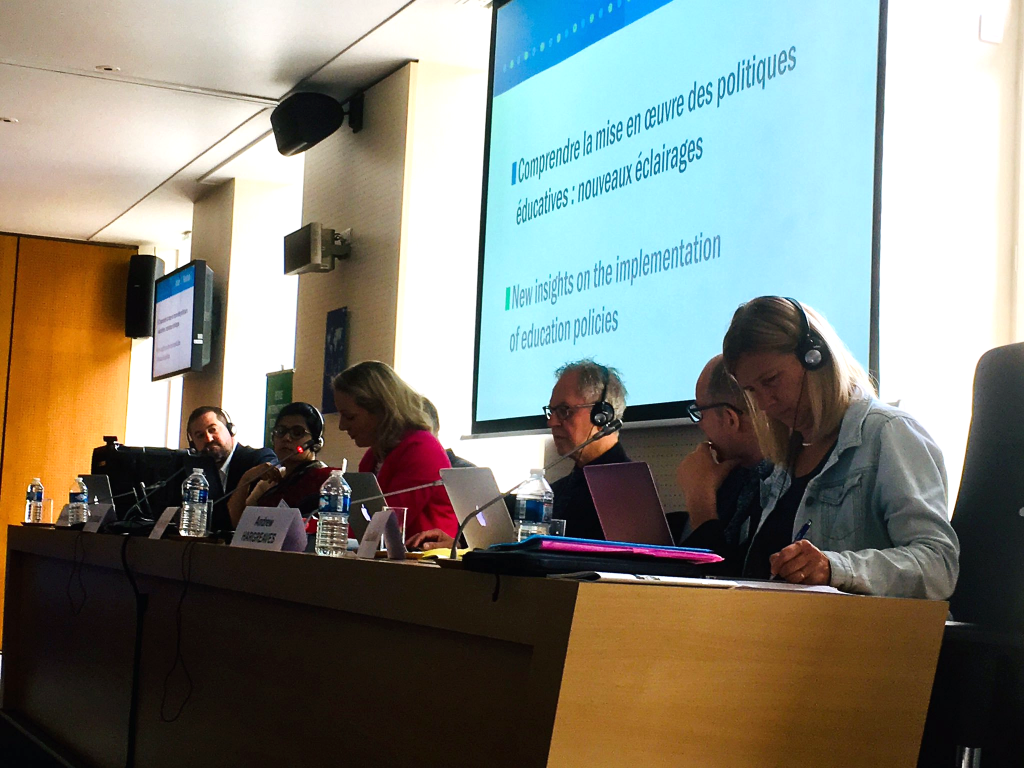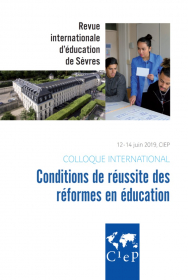COMPARTIR
SUMMA participated in an international meeting on the implementation of educational reforms, organized by the Revue Internationale d’Education de Sèvres in Paris
July 15, 2019Javier González, director of SUMMA, was invited to participate in the IV International Colloquium: Conditions for the Success of Education Reforms, held in Paris on June 12 to 14. There, he spoke about the implementation of educational policies in Latin America based on SUMMA’s experience.

In his presentation, Gonzalez shared the Latin American experience (achievements, difficulties and challenges) through SUMMA’s work in promoting the use of evidence to guide and improve macro-educational policies and pedagogical practices at the school level.
For the director of SUMMA, “the global context – marked by phenomena such as the economic slowdown, the growing citizen movements demanding greater equality, the social pressures resulting from the increase in migratory flows and the weakening of democracy – imposes on governments the duty to promote reforms that ensure the right to an inclusive and quality education for all members of society.” He added that, in order to carry this forward, “it is key to promote reforms based on principles of social justice and evidence.”
The international meeting was organized by the Revue Internationale d’Education de Sèvres, a publication of the Centre International d’Etudes Pédagogiques -CIEP- of the French Ministry of Education and brought together around sixty high-level speakers, ministers and former ministers of education, researchers and academies, as well as trainers and education officials from 30 countries.

The director of SUMMA stressed the importance of this type of meeting because “it allows us to learn from the experiences of other countries, draw good lessons and also avoid making the same mistakes of failed reforms.”
The colloquium asked participants to answer questions such as what is meant by the success of an education system and why do some education systems work better than others? Can we identify essential conditions for reform to effectively and positively transform a country’s education system? Based on this, the presentations and discussions highlighted useful levers for action, taking into account different registers: political decision-making, the various educational actors in charge of implementation, as well as evaluation and research.
